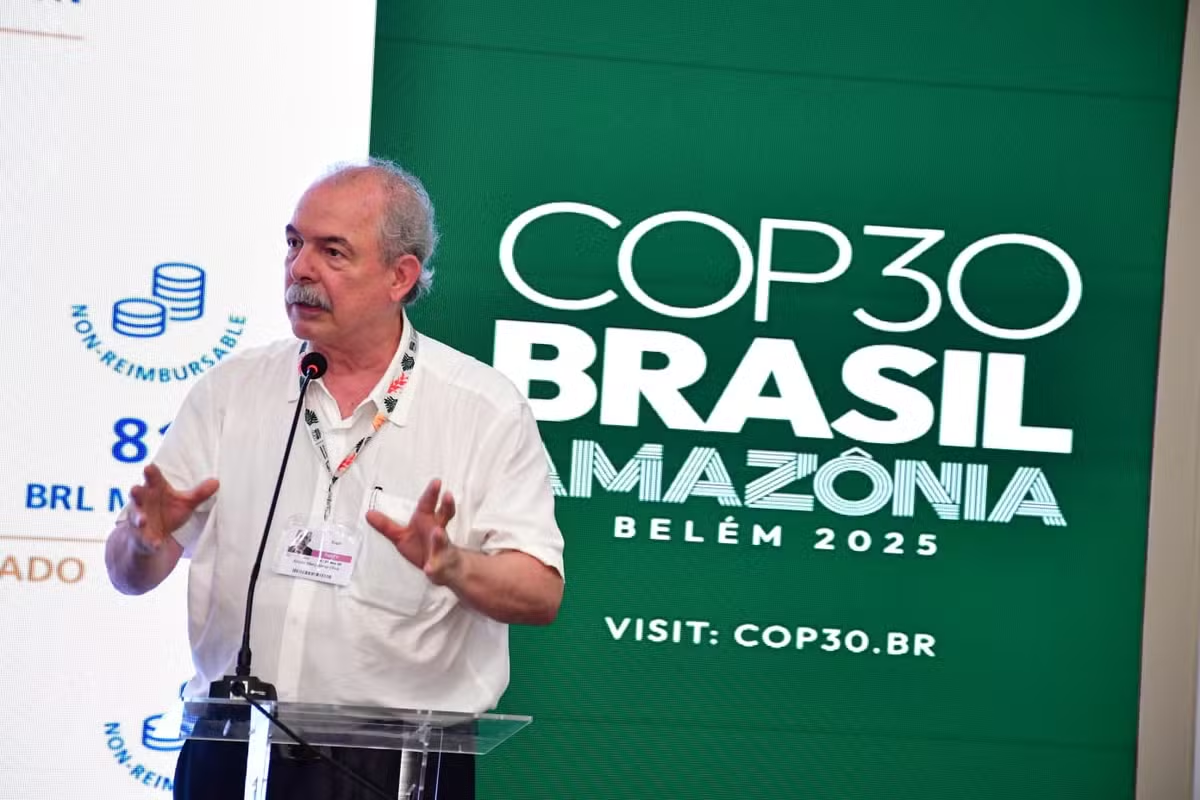
“We have defeated the naysayers at this COP, achieved many results and strengthened some initiatives,” BNDES President Aloyzio Mercadante said in a telephone interview with Blog shortly after COP30, after listing the environmentally focused actions and agreements presented by banks during the three-day congress.
- American democracy and federalism Reduce U.S. government COP absences
- Sonia Guajajara: The final document of COP30 makes it clear that indigenous territories will be recognized as part of global climate policy.
One of the initiatives announced was the creation of a permanent plan for the prevention of climate-related disasters and the recovery of affected areas. To this end, R$100 million will be mobilized for the implementation of research. The goal, Mercadante said, is to eliminate the need for the country to improvise every time a natural disaster strikes.
– Study this and create a permanent plan so you don’t have to improvise for each situation. Natural disasters will become more intense and frequent, and Brazil must prepare for them. We want to deepen this research to see what the key areas are, what the countermeasures are, how to adapt and rebuild, and also study urgency and emergencies.
The plan calls for an initial contribution of R$100 million (R$30 million from BNDES, R$20 million from Finep, and R$50 million negotiated with other partners) to finance research and build permanent prevention, response and recovery efforts. This initiative is an extension of the agreement of intent signed between the Navy and Gemmaden.
Mercadante added that the idea is to set up a special commission to put Brazil at the forefront of climate adaptation policy.
・We want to develop engineers and establish a stable system with the ability to execute and rebuild. This has not yet happened in Brazilian history, but it will happen in the future.
Mercadante recalls that during the Rio Grande do Sul tragedy, banks were hired by the state government to develop adaptation and recovery plans, with approval of specific interim measures, funding amounts and credit access criteria.
In another announcement, BNDES has completed the mobilization of R$7 billion to the forestry sector with the announcement of five new financing projects from the Climate and Forest Fund aimed at forest restoration and agroforestry systems. Together, these efforts will raise a total of more than R$900 million and cover activities in the Amazon, Cerrado, and Atlantic Forest biomes. The Fund is operated by BNDES and managed by a Management Board associated with the Ministry of Environment and Climate Change (MMA).
The bank’s president, Aloyzio Mercadante, said the main efforts are focused on transforming the Amazon’s arc of deforestation into an arc of recovery. The total amount mobilized exceeded 2 billion reais.
– Planting trees is the most efficient, cheapest and only truly scalable way to sequester carbon at scale. We sequester the equivalent of 54 million tonnes of carbon. These R$7 billion relate to contracts with five large consortiums of very important Brazilian companies. The private sector is strongly entering this market. What I want to say is: Companies investing in the green economy should not have a deficit on their balance sheets. This is a new business model that is rapidly evolving and sustainable, the BNDES president said in a blog interview.
According to Mercadante, only indigenous species are used, which opens up a wide range of possibilities in terms of use, management and environmental responsibility.
– Create 72,000 jobs from seed collection to nursery, planting, management and maintenance. What is developing in these biomes, especially the Amazon, is a forest economy.



